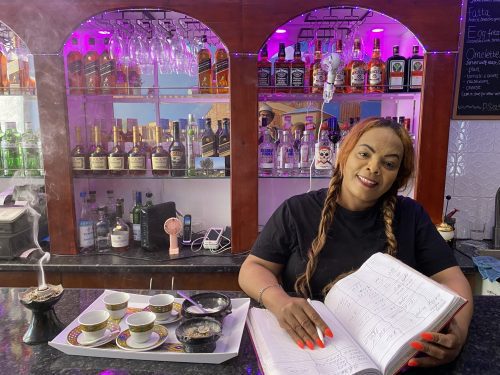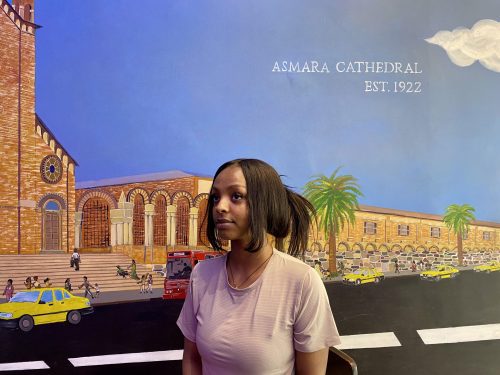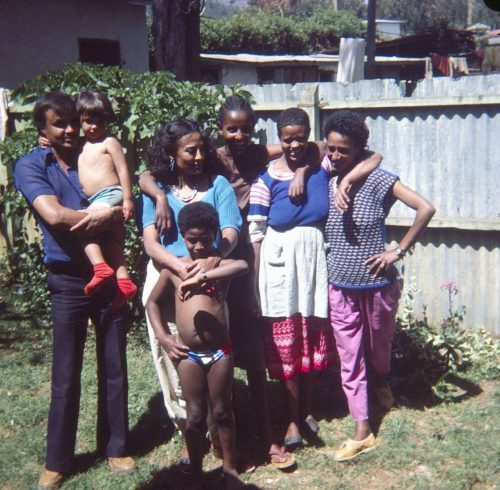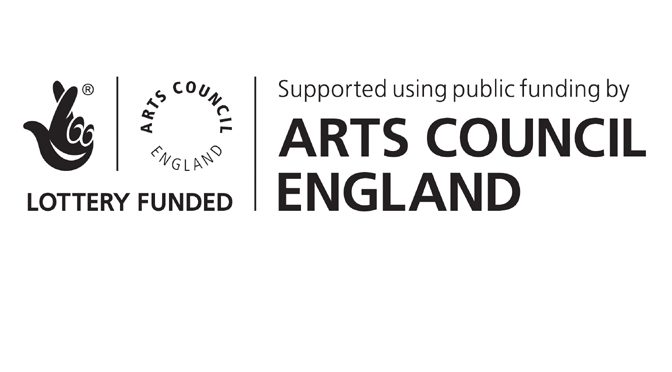Ethiopia & Eritrea in Finsbury Park: Stories in Focus was a collaboration between Pierre Bureau and Ethiopian and Eritrean residents living or working around Finsbury Park, celebrating their rich heritage through co-authored photographic portraits.
With an Ethiopian mother from Addis Abeba and a father, Jacques Bureau, who was a French ethnologist documenting life in Ethiopia and Eritrea during the 1970s and ’80s, this project held deep personal significance for me.
The portraits captured personal memories and stories, inspired by my father’s archival photos. Displayed in shop windows, restaurants, and local businesses, they offered a glimpse into the lives of the participants.
With captions in Amharic, Tigrinya, and English, the project fostered cultural awareness and strengthened community connections.
This project ran during September and October 2024 and is no longer on display.
A special thanks to the Arts Council Lottery Fund for their support.
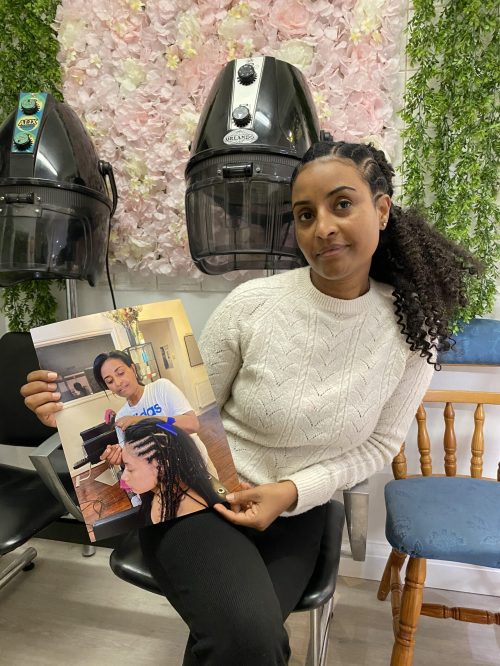
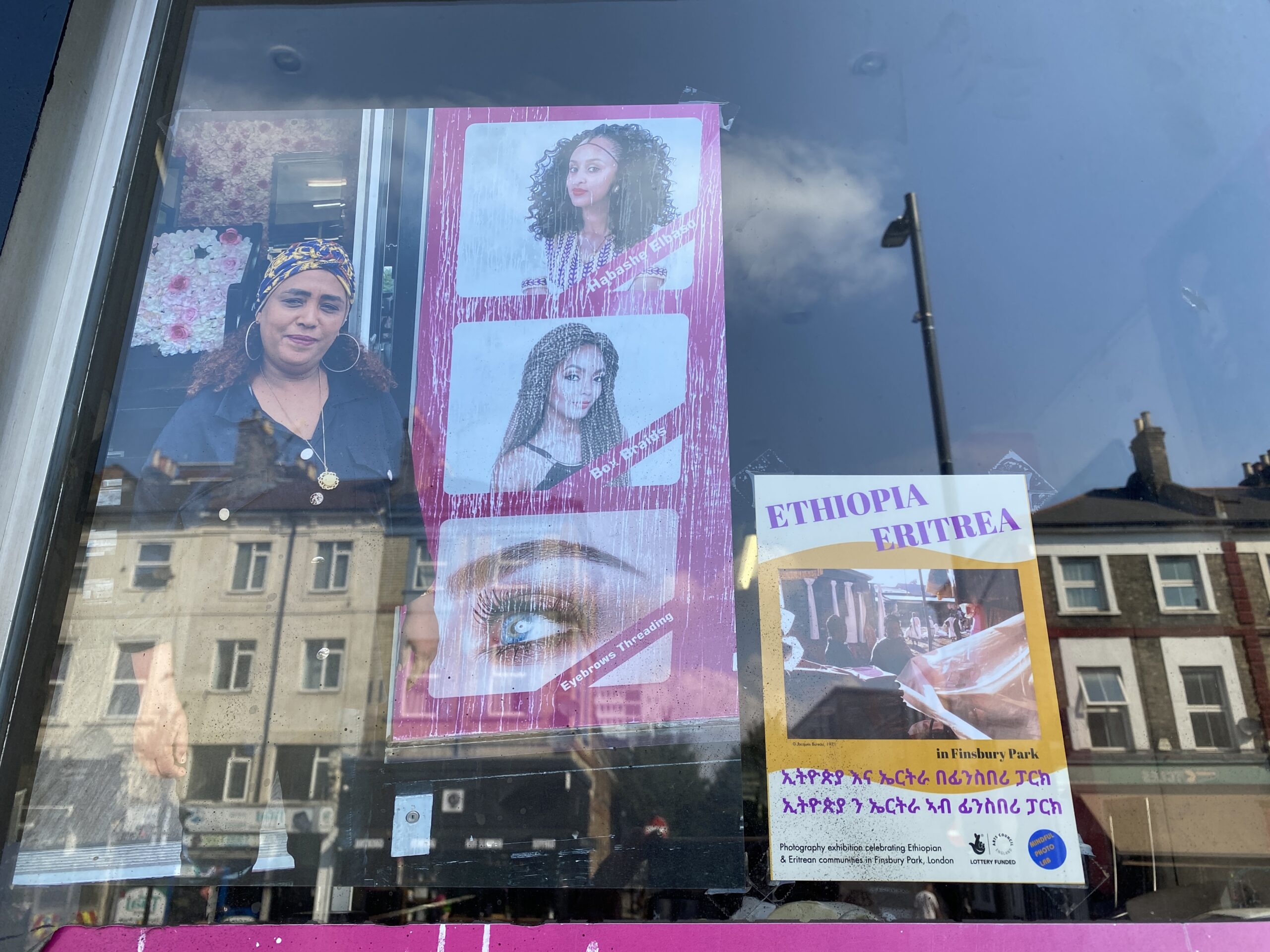
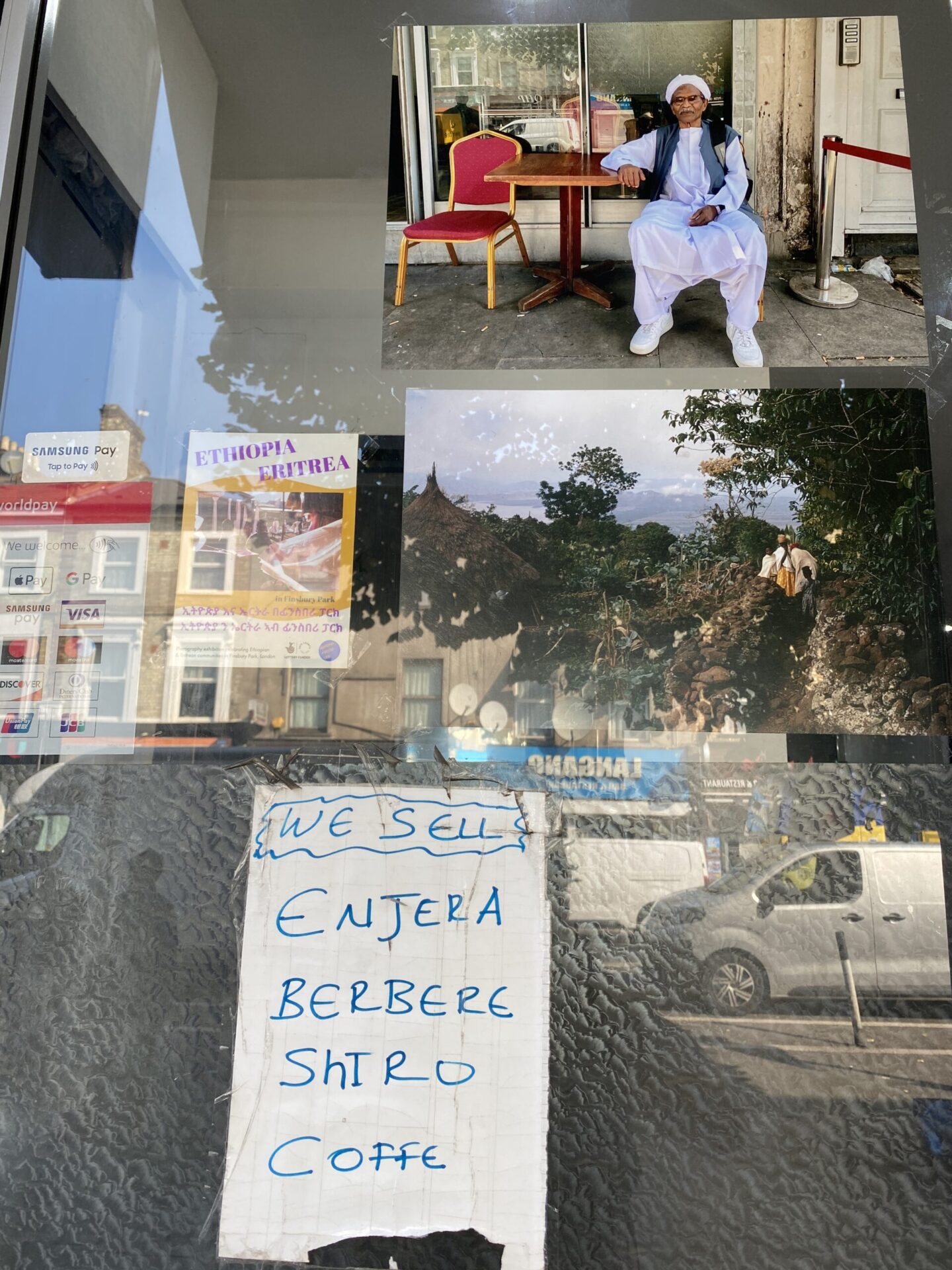
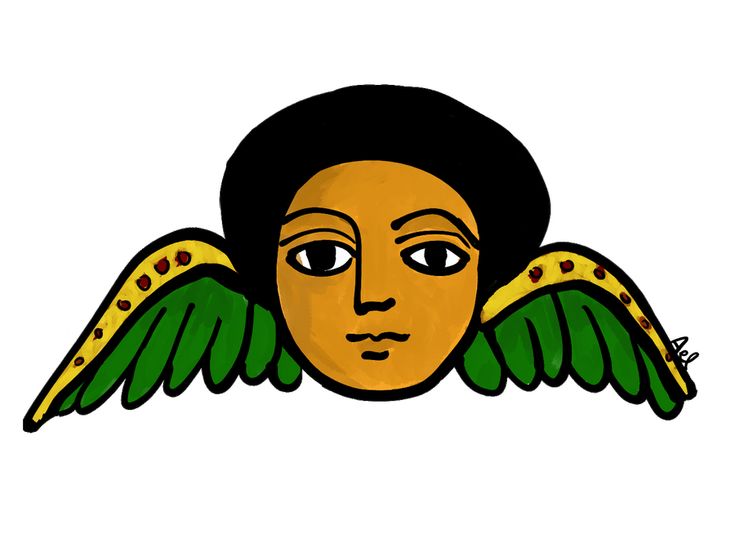
Memory of the Red Sea
መዝገበ ቀይሕ ባሕሪ
“I have been in the UK for 4 years and have enjoyed the opportunities I’ve found here, like managing the Blue Nile restaurant in Finsbury Park.
But when the weather is grey, I often daydream of home, especially the Red Sea with its warm, clear waters, vibrant fish, and coral reefs. I remember a trip after finishing school, where I visited Massawa with my classmates—a city with a rich history and a unique blend of Ottoman, Egyptian, and Italian architecture.
That memory is like sunshine inside me, even during rainy days in London.”
– Adiam, Blue Nile Restaurant Manager
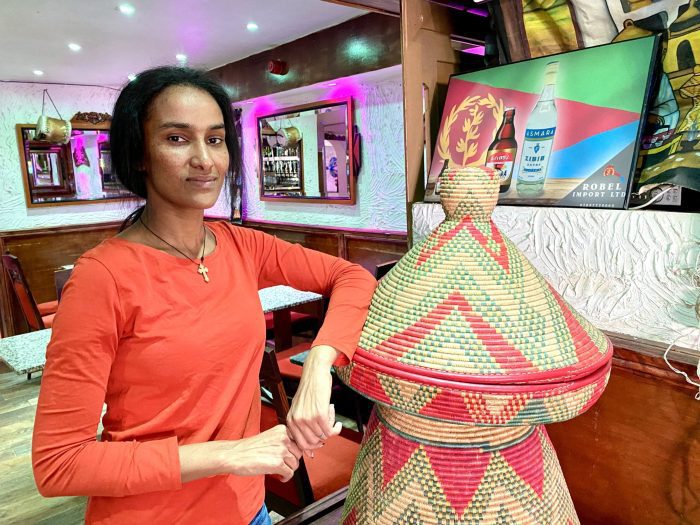

Addis Abeba: A City of Contrasts
መዝገበ ቀይሕ ባሕሪ
“Addis Abeba was a city of two faces.
On one hand, it was bustling with cars, modern buildings, and the rush of urban life. But just around the corner, fields stretched out, animals roamed freely, and life slowed down.
When I first arrived at 17, coming from a small town during the rainy season, the city felt like a different world—cold and mysterious at 2,000 meters above sea level. The Amharic language added to the unfamiliarity, creating a sense of wonder.
This photo of a market reminds me of that time, though markets like this no longer exist as the city has rapidly modernised.”
– A.
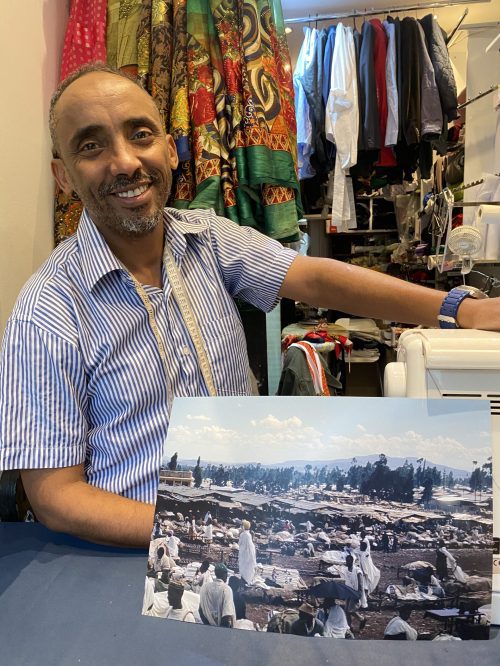
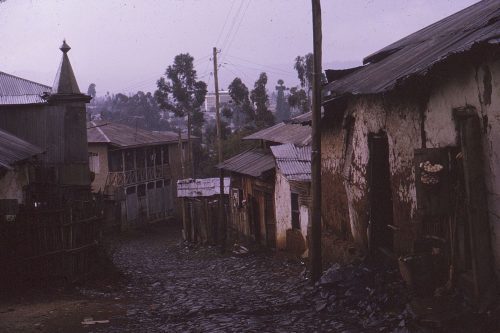
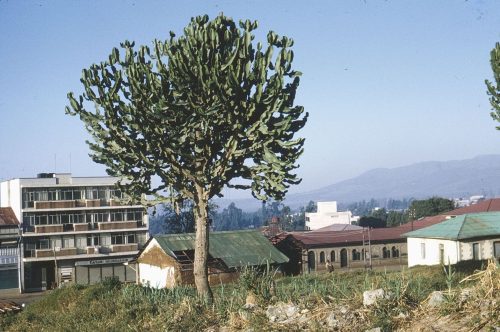

Te Tchaoute
ተጨውት
In Ethiopia, “Te Tchaoute” is an invitation to engage in playful conversation, much like the lively discussions over a warm cup of macchiato. Introduced during the Italian occupation in the 1930s, macchiato has become a beloved symbol of the blend between Ethiopian and Italian cultures.
The Ethiopian version is larger than its Italian counterpart, combining rich local espresso with steamed milk and sometimes dusted with cocoa. The term “Te Tchaoute” captures the spirit of Ethiopian coffee culture—a space where conversations flow as freely as the coffee, connecting people from all walks of life.
Whether you’re at a bustling street café or a cozy spot like Asmarino Cafe, it’s about more than just the coffee—it’s about the exchange of ideas, laughter, and stories that celebrate community.
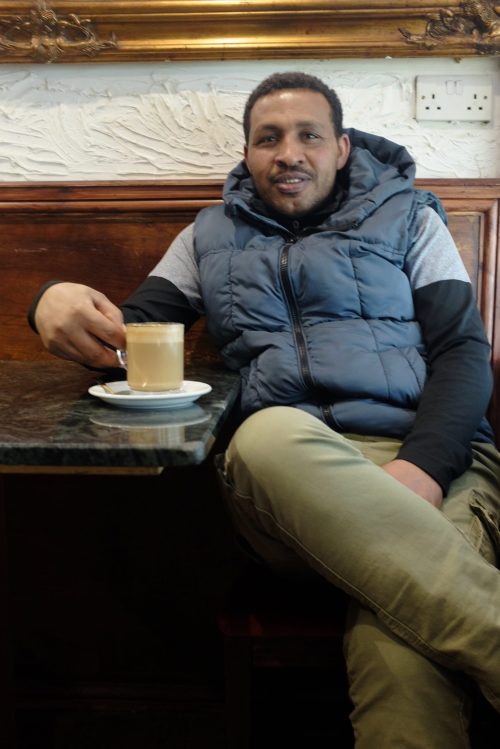
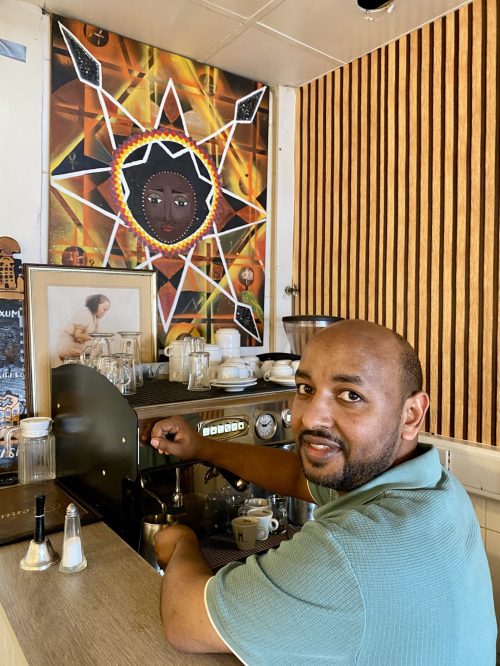
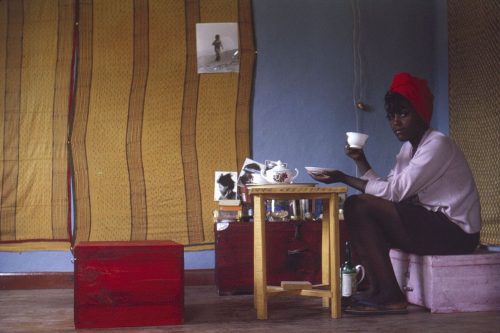

Fasika Hair Tradition
የፋሲካ ፀጉር ሥነ ሥርዓት
Fasika, the Ethiopian Easter celebration, is not only a time for religious observance but also for rich cultural traditions, including intricate hair styling practices.
During Fasika, Ethiopian women often adorn themselves with braided hairstyles like “shuruba” (cornrows) and “tibeb” (decorative braids). These styles are passed down through generations and symbolize beauty and cultural pride.
Hair preparation is a communal activity, with family and friends gathering to braid each other’s hair, enhancing the sense of connection during this special time.
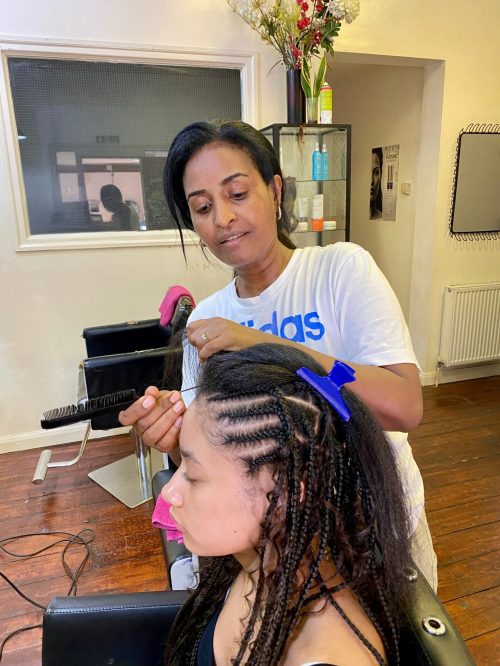
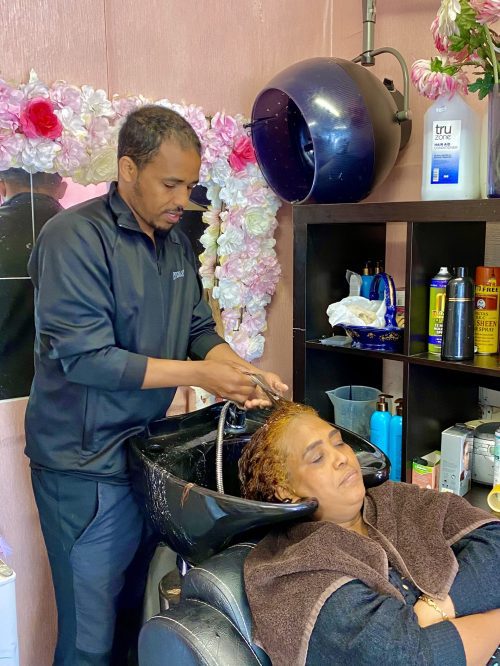
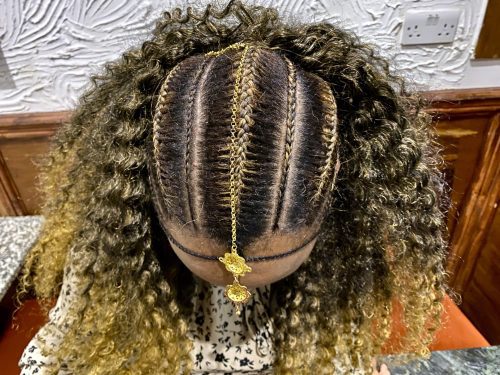

Injera: Ethiopian & Eritrean Unique Cuisine
እንጀራ: የኢትዮጵያና የኤርትራ ብቸኛ ምግብ
Injera is a soft, spongy flatbread made from teff flour, a naturally gluten-free grain that’s a staple in Ethiopian and Eritrean cuisine. Its slightly sour taste comes from fermentation, making it a nutritious base for various stews and dishes.
Meals are traditionally eaten communally, with large portions of injera spread on a plate to share. A common gesture during meals is the goursha—feeding someone a bite of food from your hand, symbolising love and friendship.
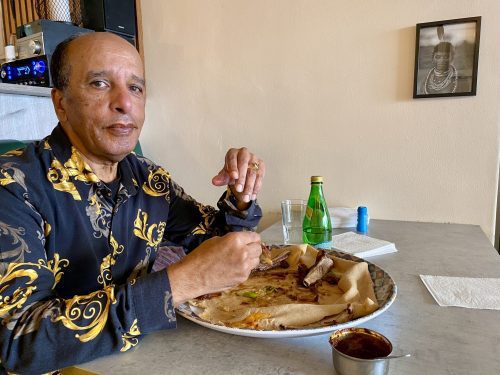
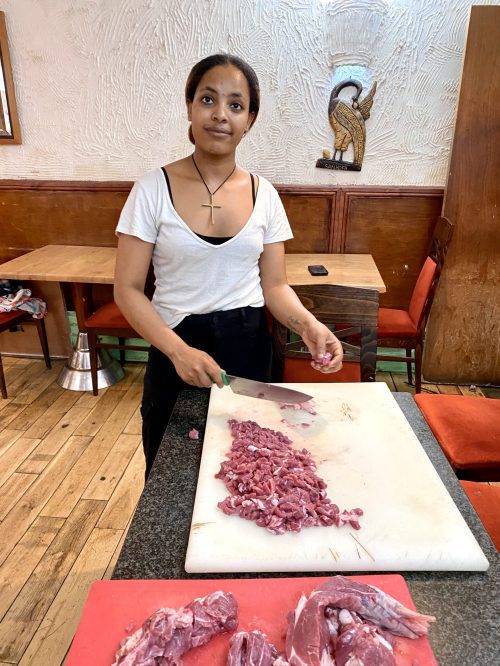
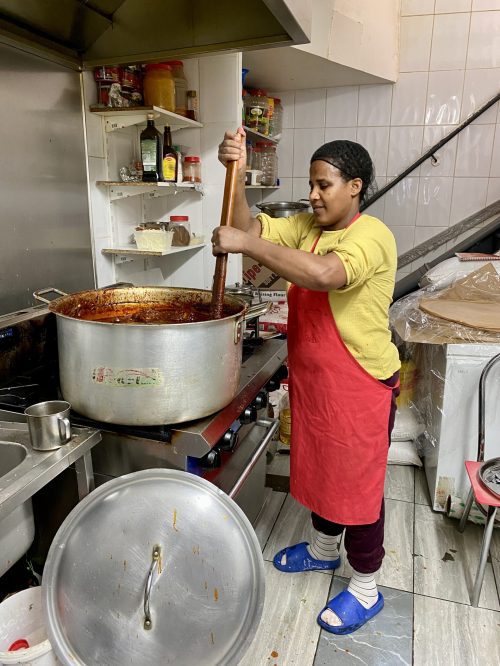

Weyni and the Pride of Adwa
ወይኒ እና ናይ ዓድዋ ሓበሻ
Weyni comes from the historic region of Adwa, located in northern Ethiopia, within the Tigray region. Known for its deep cultural significance, Adwa is the site of the famous Battle of Adwa in 1896, where Ethiopian forces triumphed over the Italian army, securing Ethiopia’s sovereignty. This victory stands as a monumental event in African history.
Weyni is incredibly proud of her heritage. Every year, the people of Adwa celebrate this victory with grand ceremonies. During these festivities, locals wear traditional clothes, often in white, while men ride decorated horses in a colorful display of cultural pride.
The annual celebration preserves the memory of the battle, reminding everyone of their ancestors’ bravery and strength.
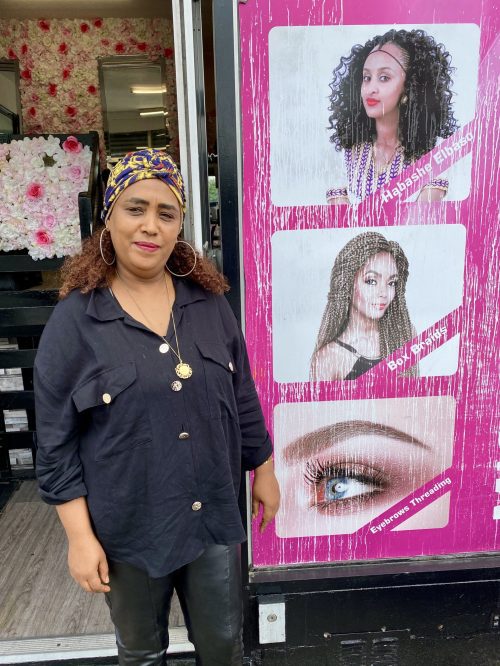
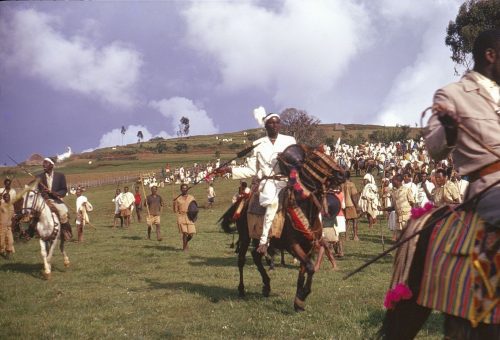
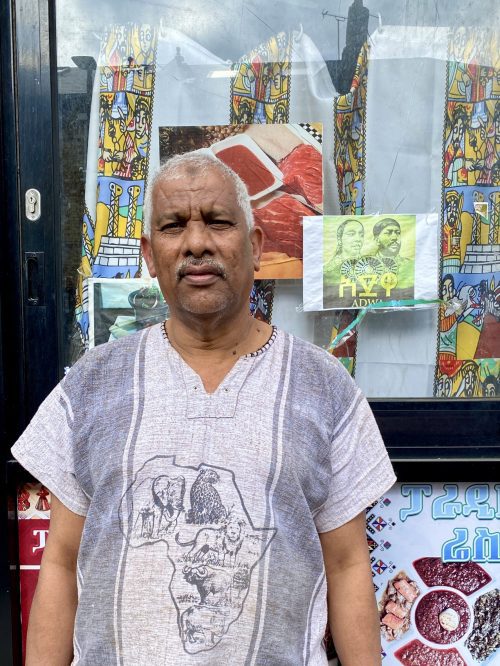

Ethiopian Music and Art: A Fusion of Tradition and Innovation
የኢትዮጵያ ሙዚቃ እና ሥነ ጥበብ: የባህል እና የዘመን ልህቀት ውህደት
Nahom holds a vinyl by Mahmoud Ahmed, an icon of Ethiopian music whose soulful Ethio-jazz sound gained popularity just before the Derg regime took power following the overthrow of Emperor Haile Selassie.
Many musicians, like Mulatu Astatke, moved abroad during this time to continue creating freely, while others, including Mahmoud Ahmed, stayed in Ethiopia.
Despite curfews, censorship, and social restrictions, musicians found ways to keep Ethiopian music alive, performing at private gatherings and adapting to the era’s limitations.
Behind Nahom, the painting of an Ethiopian bar scene recalls a time when curfews forced people to head home early or stay out all night.
Together, the vinyl and painting capture the resilience of Ethiopia’s cultural spirit during one of its most challenging periods.


The Elegance of Ethiopian and Eritrean Traditional Clothing
የኢትዮጵያና የኤርትራ ባህላዊ ልብስ ቆንጆነት
Ethiopian and Eritrean traditional clothing stands out for its distinct simplicity and elegance. Unlike other African clothing, which often features bright colors and bold patterns, Ethiopian and Eritrean outfits are typically white with subtle decorative accents.
The traditional dress, known as habesha kemis for women and netela or gabi for men, is made from shema, a handwoven cotton fabric. These garments are adorned with intricate embroidery, known as tibeb, around the edges, giving them a graceful and understated beauty.
White clothing is symbolic of purity and is typically worn during religious ceremonies, holidays, and special occasions.
While African fashion is celebrated for its vibrant colors, Ethiopian and Eritrean styles emphasize the craftsmanship of the weave and embroidery, reflecting the elegance and heritage of the region.
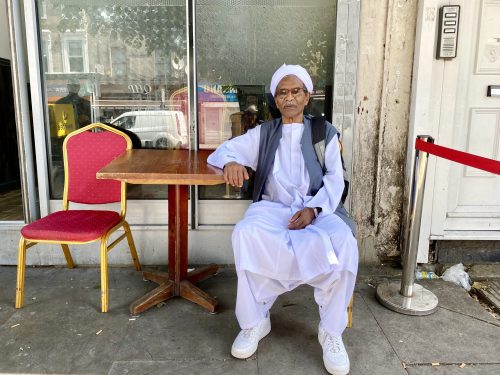
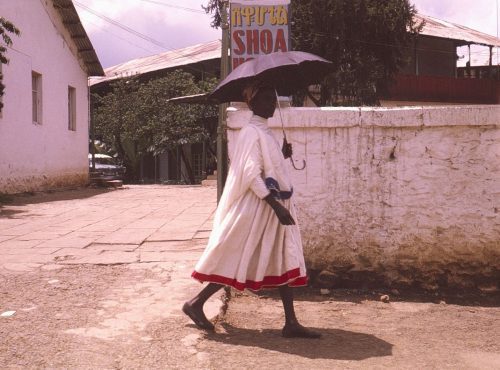

Asmarino Cafe
ኣስመራዊ ካፌ
Asmarino Cafe takes its name from Asmara, the capital of Eritrea, a city known for its stunning blend of modernist architecture, rich history, and vibrant culture.
Asmara, often called “La Piccola Roma” for its Italian influence, is a symbol of Eritrean resilience and beauty.
At Asmarino Cafe, Misgan and her daughter Selihom bring the warmth and flavors of Eritrea to Finsbury Park.
The cafe is more than just a place to enjoy traditional dishes and coffee—it is a gathering spot for the local Ethiopian and Eritrean communities, where stories are shared, and memories of home are kept alive.
Through our Finsbury Park photo project, we capture the unique role of Asmarino Cafe as a cultural hub, connecting the past and present through food, tradition, and community.
